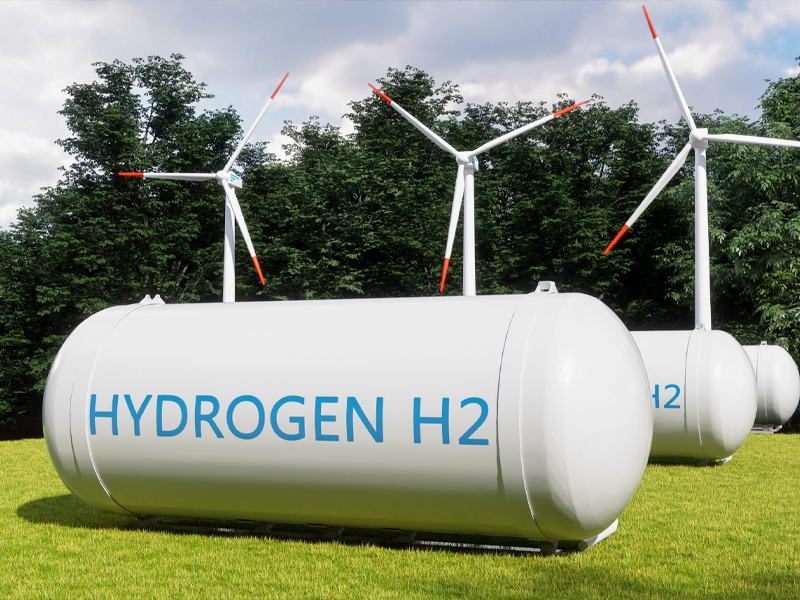As climate change accelerates and energy instability grows, many are turning to off-grid living and sustainable homesteading. Among the emerging green technologies, hydrogen power has gained attention as a potential solution for energy independence. But is it truly viable for self-sufficient living, or is it still an experimental concept?
This blog explores hydrogen’s role in homesteading—examining its benefits, limitations, and whether it could become a cornerstone of sustainable energy.
The Potential of Hydrogen Power
Hydrogen, the most rich element in the universe, produces only water vapor when used as fuel, making it an attractive clean energy source. For those seeking energy independence, hydrogen offers several key advantages.
One major benefit is its ability to store energy without traditional batteries. Solar panels and wind turbines produce power irregularly, but hydrogen can capture excess energy through electrolysis—splitting water into hydrogen and oxygen—and later convert it back into electricity via fuel cells. This provides a more durable alternative to lithium-ion batteries, which degrade over time and rely on scarce minerals.
Beyond electricity, hydrogen is remarkably versatile. It can power generators for off-grid homes, fuel vehicles like hydrogen-powered cars, and even support heating systems when converted into synthetic natural gas. For farmers and homesteaders, hydrogen could reduce dependence on diesel for machinery, offering a cleaner and more sustainable option.
Perhaps most effective is the promise of complete energy independence. A well-designed hydrogen system could create a self-sustaining loop: solar or wind energy produces hydrogen, which is stored and then used to generate power when renewable sources are inactive. This eliminates reliance on external power grids and fossil fuels.
The Challenges of Adopting Hydrogen
Despite its promise, hydrogen power faces significant hurdles before it becomes mainstream for homesteaders.
A major issue is production. Recently, most hydrogen has been derived from natural gas through a course called steam methane reforming, which emits carbon dioxide, undermining its environmental benefits. True “green hydrogen” requires electrolysis powered by renewable energy, but this method remains expensive and energy-intensive for small-scale use.
Storage and safety are also concerns. Hydrogen is highly flammable and requires specialized high-pressure tanks or cryogenic conditions to remain stable. Unlike propane or gasoline, hydrogen leaks are odorless and invisible, posing potential risks if not handled properly.
Additionally, infrastructure for residential hydrogen systems is still underdeveloped. Unlike solar panels, which are widely available and easy to install, hydrogen technology remains complex and largely experimental for individual homesteaders. Without commercial availability or standardized setups, adopting hydrogen requires significant technical expertise.
Is Hydrogen Practical for Homesteaders Now?
At present, hydrogen power is more feasible for large-scale projects than individual homesteads. However, innovators are making progress in small-scale applications.
Some companies are developing compact electrolyzers designed for home use, allowing off-grinders to produce hydrogen on-site. Others are experimenting with hybrid systems that combine hydrogen storage with solar and wind, creating a more resilient energy backup than batteries alone. Community-based hydrogen co-ops could also emerge, where neighbors share storage and production costs to make the technology more accessible.
For now, solar and wind remain the most practical renewable options for homesteaders. However, as hydrogen technology advances and costs decrease, it may become a valuable supplement—particularly for long-term energy storage and high-power needs.
The Future of Hydrogen in Sustainable Living
Governments and establishments worldwide are investing heavily in hydrogen infrastructure, signaling its long-term potential.
Countries like Japan and Germany are leading the way with hydrogen-powered public transportation and residential pilot projects. Australia is constructing massive green hydrogen facilities powered by solar and wind, while the U.S. is expanding hydrogen refueling stations, particularly in California.
For homesteaders, a fully hydrogen-powered lifestyle may still be years away. However, as the technology matures, it could become a critical component of off-grid energy systems—complementing solar, wind, and battery storage to create a truly self-sufficient home.
Final Thoughts: Is Hydrogen Worth Pursuing?
Hydrogen power is not yet a turnkey solution for homesteaders, but it holds immense promise. Those interested in sustainable living should keep an eye on advancements while relying on proven technologies like solar and wind for immediate needs.
The ideal approach may be a gradual integration—starting with renewables and incorporating hydrogen as the technology becomes more accessible. In the future, hydrogen could play a major role in making off-grid energy cleaner, more reliable, and entirely independent.



